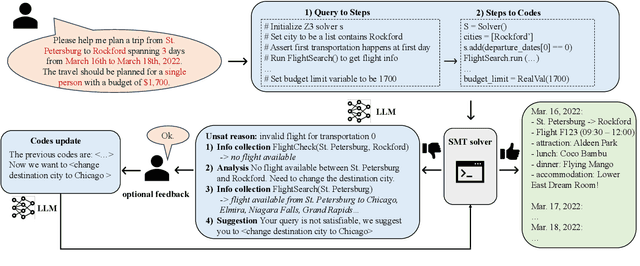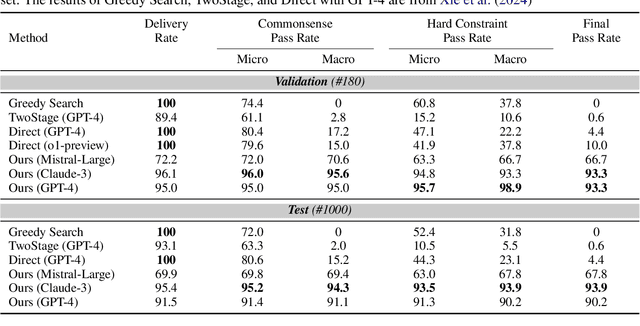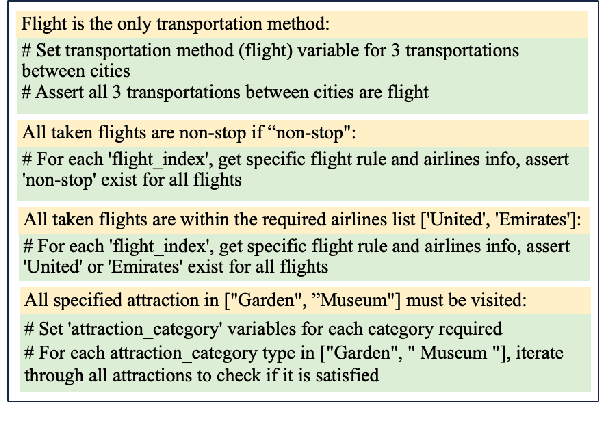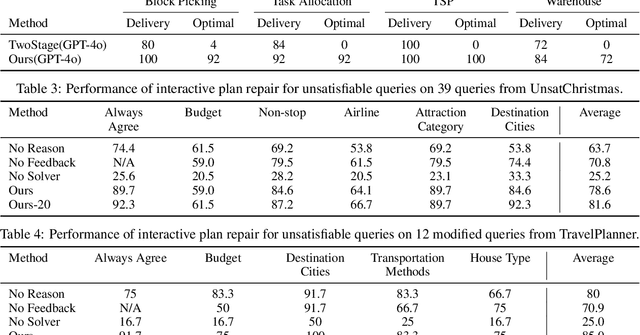Large Language Models Can Plan Your Travels Rigorously with Formal Verification Tools
Paper and Code
Apr 18, 2024



The recent advancements of Large Language Models (LLMs), with their abundant world knowledge and capabilities of tool-using and reasoning, fostered many LLM planning algorithms. However, LLMs have not shown to be able to accurately solve complex combinatorial optimization problems. In Xie et al. (2024), the authors proposed TravelPlanner, a U.S. domestic travel planning benchmark, and showed that LLMs themselves cannot make travel plans that satisfy user requirements with a best success rate of 0.6%. In this work, we propose a framework that enables LLMs to formally formulate and solve the travel planning problem as a satisfiability modulo theory (SMT) problem and use SMT solvers interactively and automatically solve the combinatorial search problem. The SMT solvers guarantee the satisfiable of input constraints and the LLMs can enable a language-based interaction with our framework. When the input constraints cannot be satisfiable, our LLM-based framework will interactively offer suggestions to users to modify their travel requirements via automatic reasoning using the SMT solvers. We evaluate our framework with TravelPlanner and achieve a success rate of 97%. We also create a separate dataset that contain international travel benchmarks and use both dataset to evaluate the effectiveness of our interactive planning framework when the initial user queries cannot be satisfied. Our framework could generate valid plans with an average success rate of 78.6% for our dataset and 85.0% for TravelPlanner according to diverse humans preferences.
 Add to Chrome
Add to Chrome Add to Firefox
Add to Firefox Add to Edge
Add to Edge